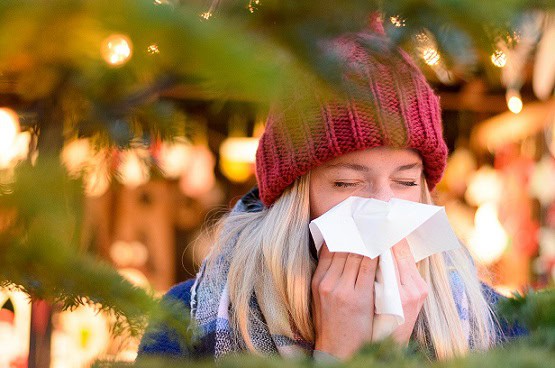
The cool nip in the air is a reminder that the bitter winter has arrived. Breathing this icy air can be risky for people with respiratory problems like bronchitis, asthma, or chronic obstructive pulmonary disease (COPD), triggering wheezing, coughing, and shortness of breath. This cold and dry air can also affect healthy people since it can irritate the airways and lead to symptoms such as cough, throat pain, stuffy nose, etc.
Get Rid Of Chest Congestion And Sore Throat With These Best Selling Respiratory Care Products
So it’s always a good idea to prepare for this season by following some important do’s and don’ts to ensure you and your family stay well throughout the cold weather.
Here are some essential do’s and don’ts to remember:
1. Stay warm
Keep your body warm by layering with comfortably warm clothes. Cover your nose and mouth with a scarf or mask when you are outdoors. Also, drink warm beverages, like hot soup and coffee.
2. Avoid strenuous outdoor exercise
Strenuous physical activities, such as running or jogging, can leave you exhausted and gasping for air, thus triggering breathing problems. Instead, try doing indoor aerobic activities. Also, incorporate breathing exercises to improve your lung capacity for easy breathing in case of chronic obstructive pulmonary disease (COPD) or asthma.
3. Keep the medications handy
Always keep your inhaler nearby if you have asthma or COPD. Keep taking your regular controller medicines as prescribed by your doctor.
4. Never skip immunization
Never miss your vaccinations for flu and pneumonia, as they will protect you from the most common virus strains and prevent the worsening of your symptoms.
5. Personal hygiene
Hand washing is the best way to keep all infections at bay. Avoid touching your mouth, nose, or eyes with your hands. In case of a runny nose, use tissues to wipe your nose and discard them.
6. Look out for allergens
Keep your home clean of dust, mold, and allergens. Clean your bedding, carpets, rugs, and sofas frequently, and use an air purifier if required. Keep minimum contact with pets, like dogs and cats.
7. Invest in a good humidifier
During winter, a humidifier can work wonders to keep the air inside the house moist and humid. However, ensure the water you use is distilled or demineralized to prevent bacteria from growing in the humidifier. Also, make it a habit to clean the humidifier at regular intervals.
8. Improve immunity
Drink herbal teas, like lemon honey tea, and add oranges, amla, garlic, clove, turmeric, etc., to your diet to improve your immune system.
9. Eat a healthy diet
Eat a balanced diet with fruits, vegetables, and lean protein, and avoid processed foods, white flour, and sugar, as they increase mucus production and block the airways.
10. Up your fluid intake
Drink at least 6 to 8 glasses of water daily (unless your doctor gives you other guidelines). You may also add soup and juices to your diet.
11. Stop smoking
Quit smoking and avoid smoke from tobacco, fireplaces, and wood stoves, as they can trigger asthma and COPD symptoms.
12. Avoid going outside
If you have asthma, it is advisable to stay inside to avoid the worsening pollution and, thus, an asthma attack.
13. Avoid crowds
Steer clear of anyone with a cold or flu, and stay home if you’re sick.
14. Look after your mental well-being
Taking care of your mental and emotional well-being is just as important as your physical health. Try to reduce your stress and indulge in simple meditation or yoga daily.
Remember, these are just a few things you can do to stay protected. If you notice symptoms that need medical attention, it is best to consult a doctor.
Stay safe, and stay healthy!
(The article is written by Monalisa Deka, Senior Health Content Editor and reviewed by Dr. Rajeev Sharma, Vice President (Medical Affairs))
Recommended Reads:
How To Prevent The Spread Of Respiratory Infections?
How Do Respiratory Infections Spread From Surfaces?
Reference
1. John Hopkins Medicine. Winter Illness Guide. (online). Available from: https://www.hopkinsmedicine.org/health/conditions-and-diseases/winter-illness-guide
2. Asthma and Lung. Keeping well in the cold: what you can do. (online). Available from: https://www.blf.org.uk/support-for-you/cold-weather
3. CDC. Common Colds: Protect Yourself and Others. 2021. (online). Available from: https://www.cdc.gov/features/rhinoviruses/index.html